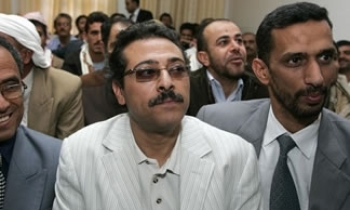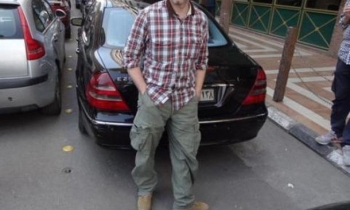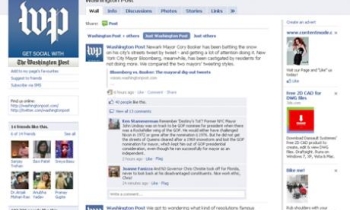PARIS – Restrictions on civil liberties due to the 'war on terrorism' have undermined media freedom in the United States and Russia over the past year, journalists' rights group Reporters Without Borders (RSF) said.
RSF's 2006 Worldwide Press Freedom Index released on Tuesday, a survey of censorship, intimidation and violence against journalists, found Finland, Iceland, Ireland and the Netherlands the most media-friendly. North Korea was last again.
Denmark fell from first last year to 19th after a Danish newspaper's publication of cartoons depicting the Prophet Mohammad sparked Muslim outrage and threats against reporters.
The United States fell nine places to 53rd in the survey of 168 countries, on a par with Botswana, Croatia and Tonga. It came 17th when the index was first compiled in 2002.
'Relations between the media and the Bush administration sharply deteriorated after the president used the pretext of 'national security' to regard as suspicious any journalist who questioned his 'war on terrorism',' RSF said in a statement.
'The zeal of federal courts which ... refuse to recognise the media's right not to reveal its sources, even threatens journalists whose investigations have no connection at all with terrorism,' RSF said.
It cited the examples of freelance journalist Josh Wolf, who was imprisoned for refusing to hand over video footage of a violent anti-capitalism protest in San Francisco, and of Sudanese Al Jazeera cameraman Sami al-Haj, who it said was being held without charge at the Guantanamo Bay prison camp.
Russia also fell nine places, to 147th, in a year marked by the murder of journalist Anna Politkovskaya, who was fiercely critical of government policy, particularly of Moscow's campaign against the insurgents in Chechnya whom it calls terrorists.
'Russia, which suffers from a basic lack of democracy, continues slowly but steadily dismantling the free media, with industrial groups close to President Vladimir Putin buying up nearly all independent media outlets and with the passage of a law discouraging NGO activity,' RSF said.
The law requires foreign non-governmental organisations (NGOs) to submit a long list of paperwork, including passport numbers and home addresses of the parent group's founding members, to an agency which decides whether to approve them.
The Kremlin says the law is vital to prevent terrorists, money launderers and foreign intelligence services using NGOs as cover. Critics say it gives officials a free hand to harass charities and human rights groups it does not like.
WORST DON'T CHANGE
In Japan, the firebombing of the Nihon Kenzai newspaper, rising nationalism and far-right attacks against journalists helped the country fall 14 places to 51st, RSF said.
France fell five places to 35th, partly due to an increase in searches of media offices and journalists' homes, RSF said. Police probing doping in cycling raided the offices of sports daily l'Equipe and weekly magazine Le Point.
'The steady erosion of press freedom in the United States, France and Japan is extremely alarming,' RSF said.
North Korea, Turkmenistan and Eritrea remained the three most repressive countries, clocking up the highest scores. They were the only states to score more than 90 points last year but Iran, China, Burma and Cuba joined them this year.
More promisingly, Bolivia jumped to 16th from 45th, though RSF said that could change due to political tension, and the tiny Himalayan kingdom of Bhutan leapt 44 places to 98th thanks to the publication of its first privately owned newspaper.
(Additional reporting by Patrick Vignal)









